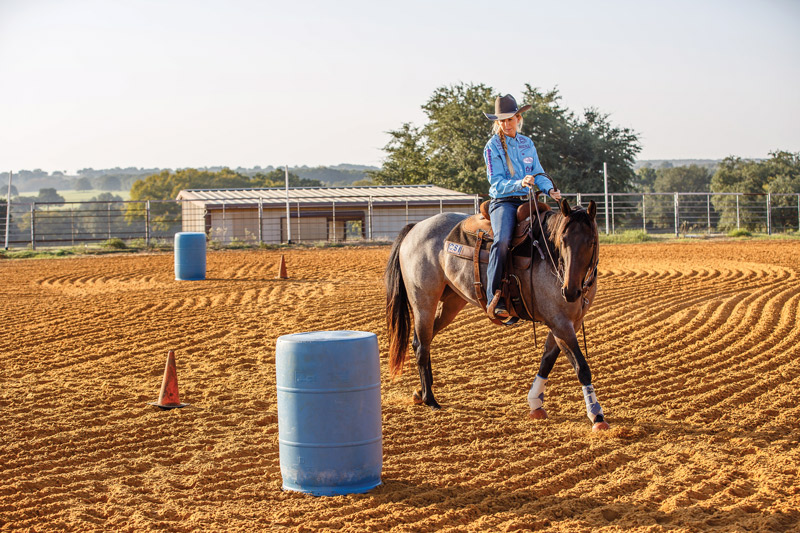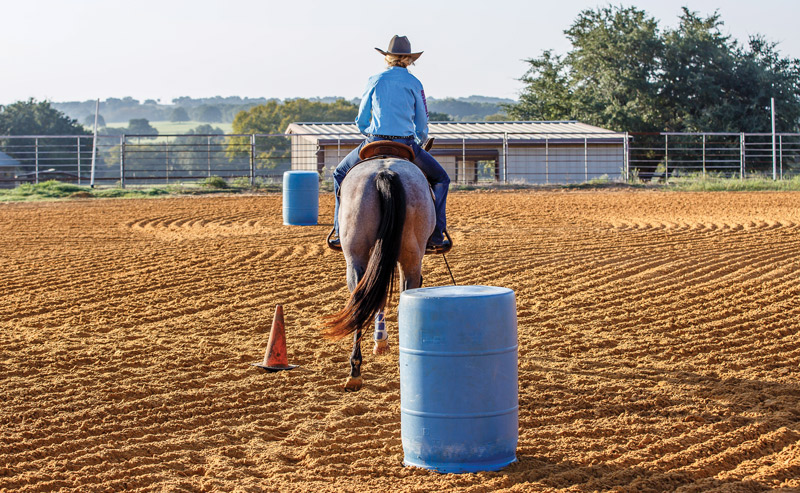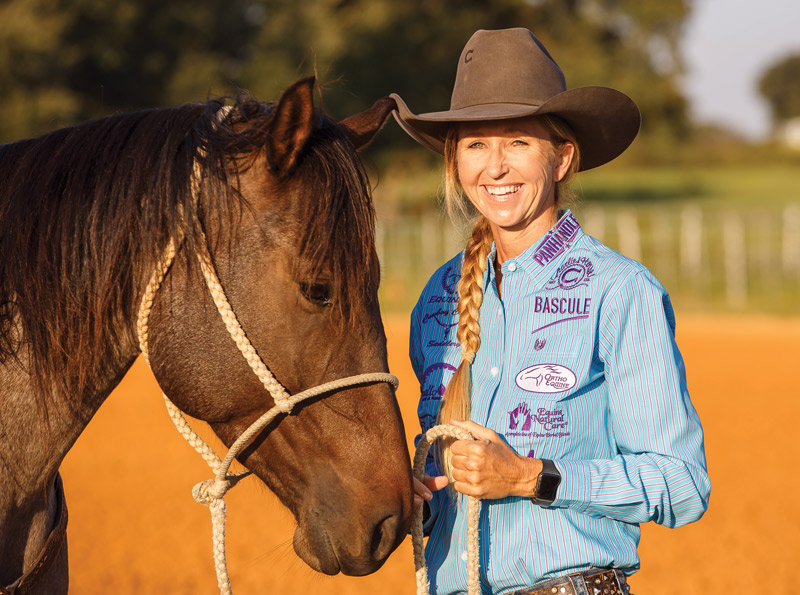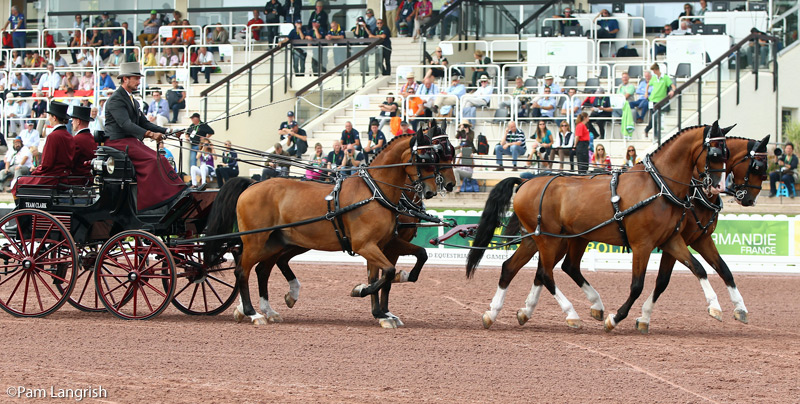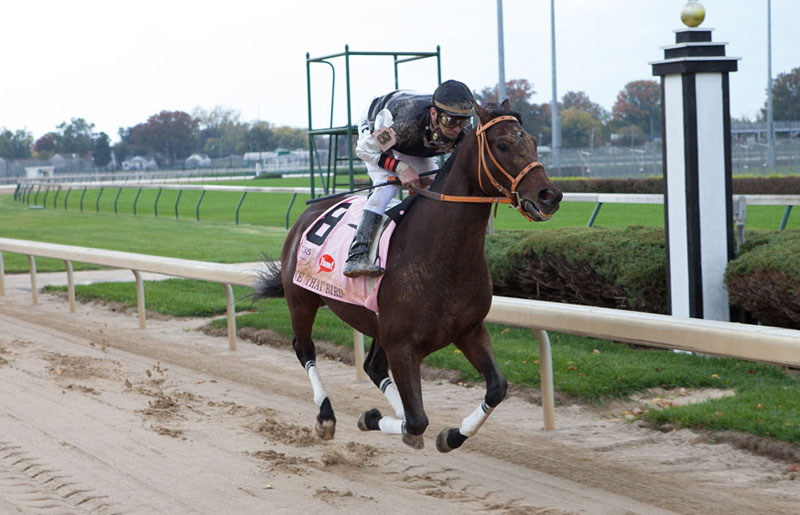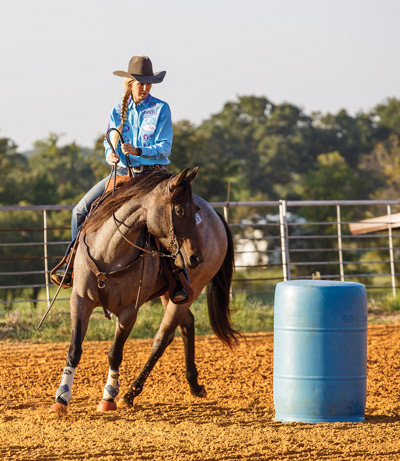
Building a pocket at the entrance of your barrel turn means you can close the turn tighter as you accelerate on to the next barrel. Photo by Abigail Boatwright
The shortest distance between two points may be a straight line, but it’s not always the fastest—especially in barrel racing. If you want to shave seconds off your time and leave the barrels standing when you cross the timer, you’ll need to perfect your pocket while you chart your cloverleaf path around the barrels in your barrel racing pattern. Veteran barrel racer Cheyenne Wimberley shares how.
Why Take the Long Way?
Think of it like driving a car or riding a bike, says Wimberley. When you approach a corner, you don’t want to turn too tightly, or you won’t make it.
“You have to keep the distance where your speed continues in a forward motion, but it’s easy for you and your horse to make the turn,” she says. “You need enough distance to turn but still remain upright.”
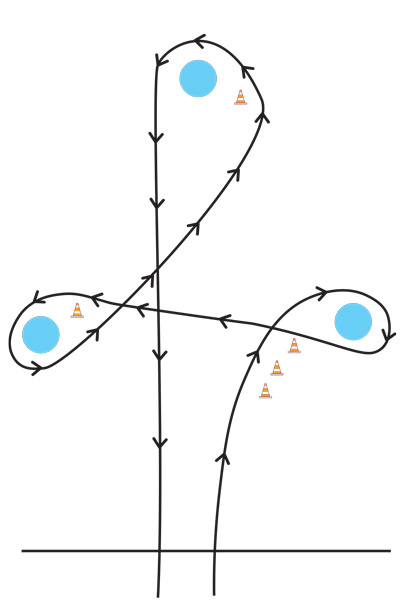 Without this space, your horse will need to slow down to turn completely, and you risk knocking the barrel over in the struggle, automatically adding five seconds to your time, which can be devastating to your placing.
Without this space, your horse will need to slow down to turn completely, and you risk knocking the barrel over in the struggle, automatically adding five seconds to your time, which can be devastating to your placing.
You’re not leaving space all the way around the barrel, however. You just need that space as you go into the barrel, cutting it tight on the backside of the turn as you exit.
A Good Rule of Thumb
So how far should you be from the barrel as you enter the turn? Wimberley aims for a point about a horse length, 6 to 8 feet, away from—and to the side—of the first barrel. This is also the spot she pinpoints for her downshift in speed to make the turn. For the second and third barrel, she sticks to about a 4-foot distance at the entrance of the turn.
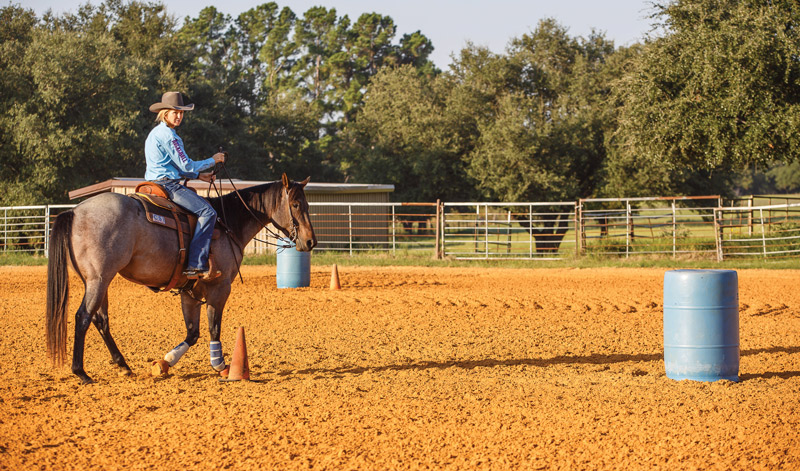
Eventually, you can move to a single cone at each barrel designating the pocket, where you need to slow your horse before the turn. When you can visualize your pocket every time, you can remove the cones. Photo by Abigail Boatwright
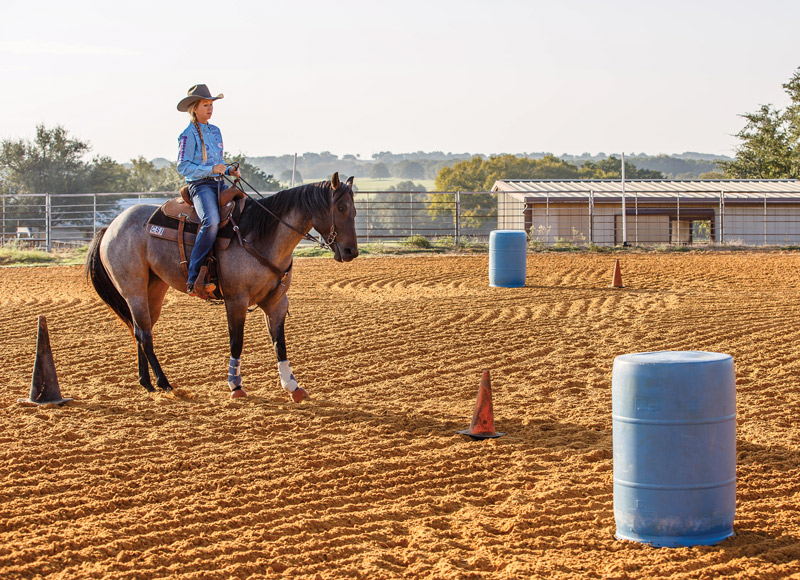
As you approach the barrel, point your horse straight to a spot 6 to 8 feet from the barrel, then ask your horse to stop with your body cues and reins when his shoulder is lined up with the barrel. Photo by Abigail Boatwright
“It’s like using a brake,” she says. “You learn to gauge the speed you’re going, and how hard you need to brake before you turn.”
Building Your Pocket in Barrel Racing
Beginning at the end of the arena by the in-gate, Wimberley lines up with the third barrel as she’s making her way toward the first barrel—usually, the one on the right. She says starting in the center makes for an easier approach.
She advises you to pick your pocket area before you get to the barrel. It’ll be the same every time, so with practice, your pocket will become automatic. Wimberley says the first barrel is the most difficult because you’re often coming up the alley and you have to get that angle to nail the first turn.
When you get to your chosen spot a horse length away from the barrel, ask your horse to stop. You’ll simply “rate” or slow for a moment while actually running the pattern, but in practice, you’ll come to a complete stop.
Wimberley aims her horse directly to the designated spot beside the barrel, avoiding over-shaping her horse’s head and body on the way.
“I feel like a horse runs faster when he’s going in a straight line, so I really just go to that spot,” she explains. “I don’t want him to run with his head cocked to the side. I just want to keep him in a natural, forward position.”
Her first cue at that spot will be to check her speed by sitting deep in the saddle and then picking up the inside rein. Once your horse has taken a moment to slow, he’ll be ready to turn the barrel and head to the next one.
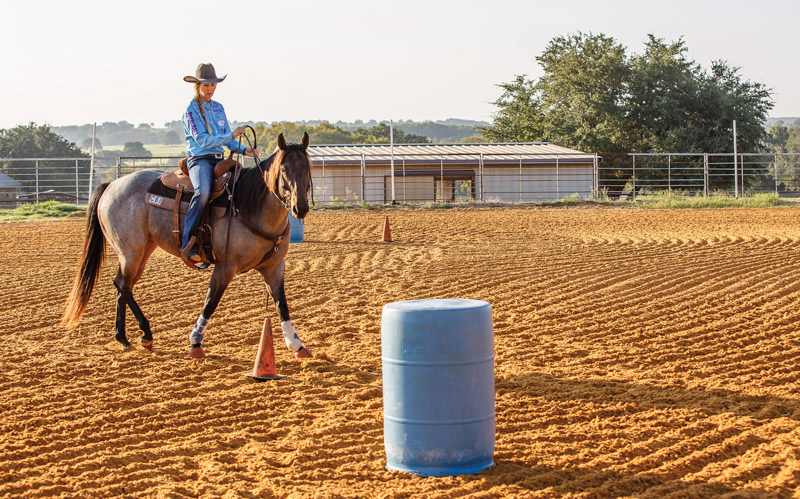
Next, shape your horse up for the turn while keeping that “pocket” as you go into the turn. Photo by Abigail Boatwright
Practice Tips
When you’re first mastering the pocket in barrel racing, Wimberley says it can be helpful to set out several cones in a line at the entrance to the barrel to guide your path. Practice at a walk, trot and slow lope.
Once you’ve gotten familiar with the exercise, you can remove all but one cone at the barrel at your rate point. Eventually, you can remove all your cones and focus on visualizing that spot every time you get ready to turn. Even at top speed, Wimberley says you’ll need a pocket and a slight shift in speed to make the turn and make your barrel racing patterns faster.
“Even now, I’m still doing the basics,” she adds. “I try not to make [barrel racing] any harder than what it is. Getting to the right spot and setting up your turn are really just simple fundamentals that a lot of people forget.”
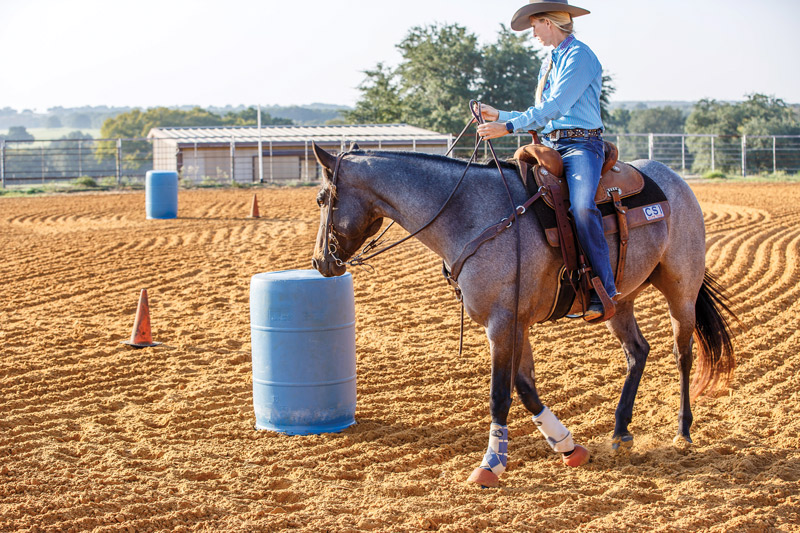
On the backside of the turn, tighten your circle to be closer to the barrel. Photo by Abigail Boatwright
Meet the TrainerCheyenne Wimberley of Stephenville, Texas, has been a barrel racer and roper all her life, winning her first state championship at age 4. She began competing in professional rodeo at age 10 and was ranked 16th in the world at age 11. Cheyenne has won at the Calgary Stampede, Cheyenne Frontier Days, and is a four-time National Finals Rodeo competitor, most recently in 2019 and 2020. |
This article about finding the pocket for a faster barrel racing pattern appeared in the January/February 2021 issue of Horse Illustrated magazine. Click here to subscribe!

